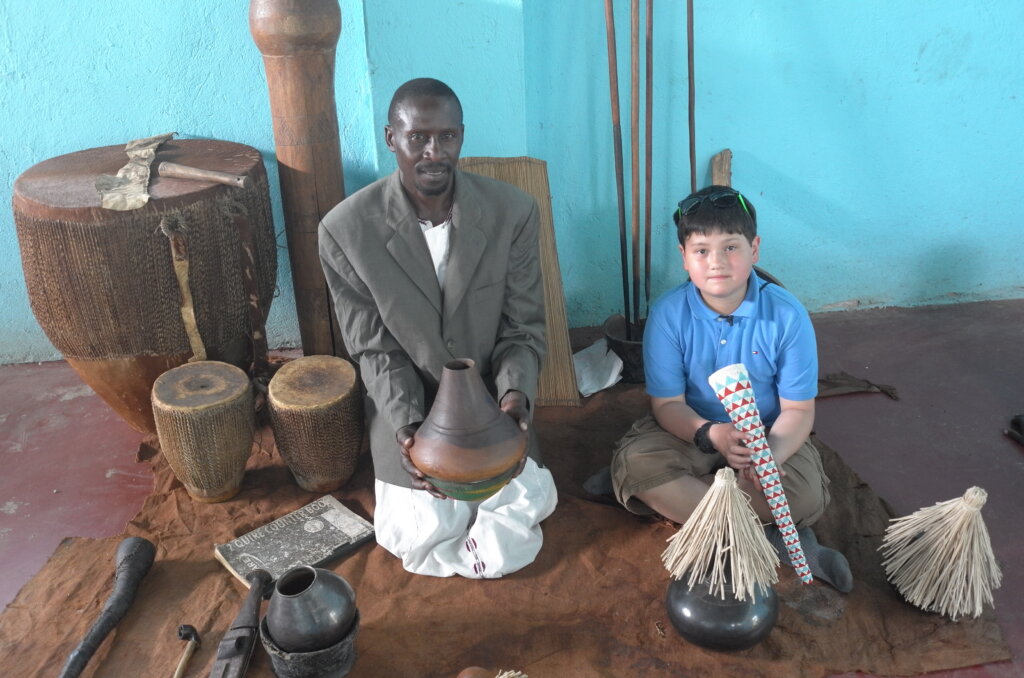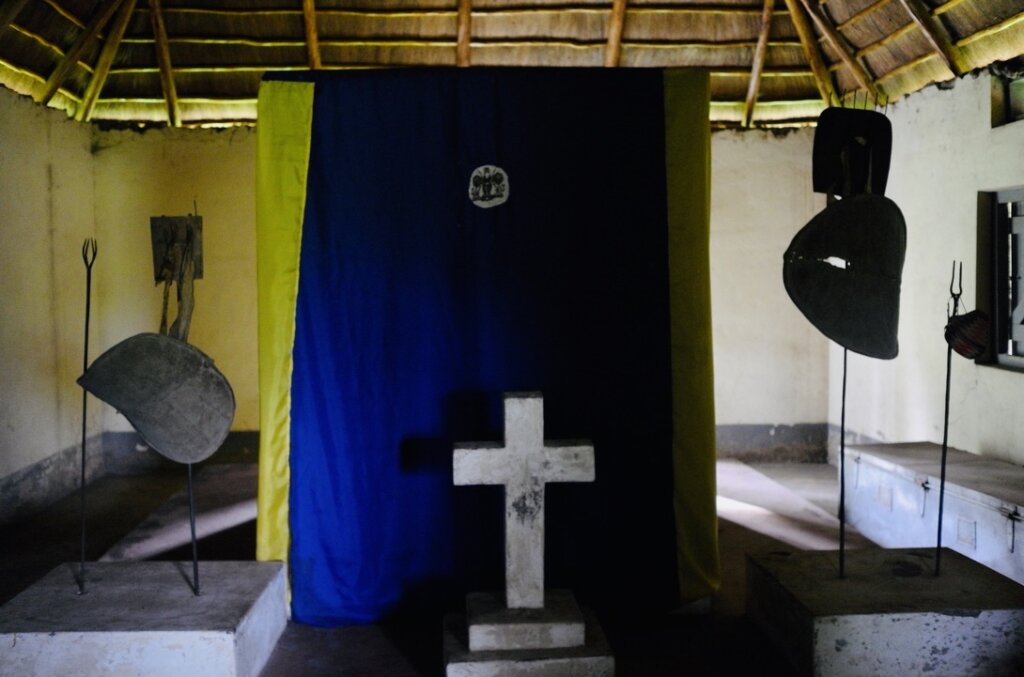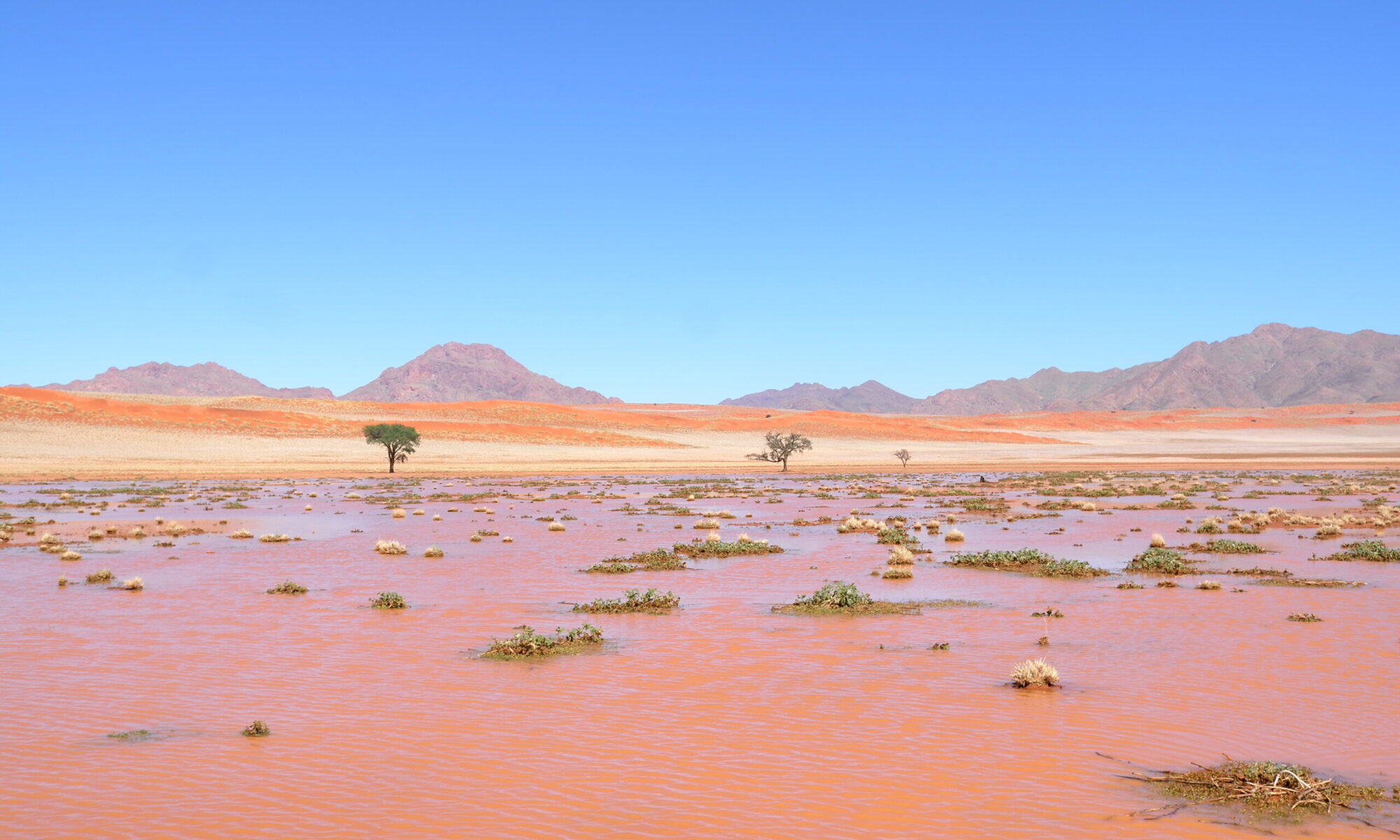Centered around Fort Portal, the Toro Kingdom is the youngest of Uganda’s remaining nine kingdoms, having been born in 1825 when its southern principality split away from the Bunyoro Kingdom.
As we visit the rather forlorn Royal Tombs (the last entry in the visitors book dates back to September), we encounter the Guardian of the Royal Tombs, the third generation of his family to hold that office. Located at the end of a bumpy, rural road in the middle of overgrown fields, the three first Toro kings are each buried in their own small cottage.
The Guardian has an aura of quiet dignity about him and seems at once surprised and grateful to have visitors. As often in Africa, we find that knowledge of traditions and history is fast disapperaring and only kept by a few elders.

We pick up some interesting tidbits during the visit.
When a king dies, he is buried in the Royal Tombs without the presence of his close family who remain unaware of the location of the Royal Tombs. That knowledge is kept secret from the reigning king, to ward him from bad luck.
When the king has a son and heir, he is not allowed to meet him so that two kings (the present and future kings) are never in each other’s presence, which could negate their powers. The current and fourth king of Toro was sent to England when he was born and his father never met him.
Every new king needs to be given a ceremonial lion or leopard skin. That skin must be obtained from an animal who has killed a man. To achieve this, two members of the king’s clan are selected to go and hunt a lion or leopard. One of them sacrifices himself by taunting and distracting the animal while the other one kills the lion or leopard. This custom is still practiced today.
Finally, we meet the Sacred Ankole Cow, appointed when the new King is crowned and symbolically the recipient of the Kingdom’s wealth and fortune. The cow is worshipped and protected by the Toro during the king’s reign. We find the current incumbent grazing nonchalantly near a cluster of tombs belonging to minor aristocracy.

